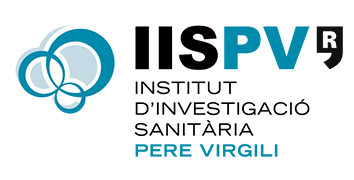News
Scientific Articles 01-07-2021
Scientific Articles 14-05-2021
Posted on 14-05-2021
Scientific Articles 01-09-2021
Posted on 13-05-2021
In the framework of NEUROSOME, we are organizing the course entitled: "How to prepare a successful proposal". This course is addressed to the MSCA PhD candidates of NEUROSOME and will be held virtually from May 10 to 15.
See below the programme of the course:
|
Day 1 – Monday, 10 May 2021 |
|
|
9:00-9:30 |
Welcome Session : Prof. Denis Sarigiannis |
|
9:30-10:15 |
Session 1: General Introduction Speaker: Dr. Vikas Kumar |
|
10:15:10:25 |
Coffee Break |
|
10:25-11:15 |
Session 2: Structure of the proposal Speaker: Dr. Bartosz Tylkowski |
|
11:15-13:00 |
Group activity (choosing a suitable grant and elaborating overall prospective about proposal). |
|
13:00-15:00 |
Lunch Break |
|
15:00-17:00 |
Group discussion and feedback from coordinating committee |
|
Day 2 – Tuesday, 11 May 2021 |
|
|
9:00-11:00 |
Session 3: Excellence of the proposal with relation to objective, work plan, deliverables etc. Speaker: Dr. Bartosz Tylkowski |
|
11:00-11:10 |
Coffee break |
|
11:10-13:00 |
Group activity (Prepare objective and work plan for the proposal) |
|
13:00-15:00 |
Lunch Break |
|
15:00-17:00 |
Group discussion and feedback from coordinating committee |
|
Day 3 – Wednesday, 12 May 2021 |
|
|
9:00-11:00 |
Session 4: Impact, budget and submission of the proposal Speaker: Dr. Gemma Papiol |
|
11:00-11:10 |
Coffee break |
|
11:10-13:00 |
Group activity (Prepare outcome and budget for the proposal) |
|
13:00-15:00 |
Lunch Break |
|
15:00-17:00 |
Group discussion and feedback from coordinating committee |
|
Day 4 – Thursday, 13 May 2021 |
|
|
9:00-11:00 |
Session 5: Plan for Exploitation and Dissemination of project Results Speaker: Dr. Montse Marquès |
|
11:00-11:10 |
Coffee break |
|
11:10-13:00 |
Group activity (Dissemination for their projects with innovative ideas) |
|
13:00-15:00 |
Lunch Break |
|
15:00-17:00 |
Group discussion and feedback from coordinating committee |
|
Day 5 – Friday, 14 May 2021 |
|
|
9:00-11:00 |
Session 6: Project Management and Analysis of proposals and examples of evaluation comments for proposals like Marie Curie. Summary of important points Speaker: Dr. Vikas Kumar |
|
11:00-11:10 |
Coffee break |
|
11:10-12:00 12:00 -12:30 |
Play Kahoot. A game with multiple-choice questions about learning during workshop Closing of the workshop |
Posted on 10-05-2021
Researchers from Stanford University have created a public database of more than 100,000 leading scientists from around the world. It includes the top 100,000 scientists based on their impact globally, but also others who are in the top 2% in their research subfields. The study, published openly in the journal Plos Biology, is based on citation data collected in Scopus.
Prof. Schuhmacher is listed as Professor from the Chemical Engineering Department from Universitat Rovira i Virgili, while Prof. Domingo and Dr. Nadal as reseachers from Institut d'Investigació Sanitària Pere Virgili.
Posted on 10-05-2021
Scientific Articles 30-04-2021
Posted on 05-05-2021
Scientific Articles
Posted on 28-04-2021
SEAFOODTOMORROW is almost at the end and the Key Achivements Booklet has been developed.
This interactive booklet summarises the key achievements of the SEAFOODTOMORROW project: Nutritious, safe and sustainable seafood for consumers of tomorrow. This booklet is for all seafood stakeholders, including industry representatives, policy- and decision-makers and seafood consumers. We present the Eco-Innovative Solutions and Key Exploitable Results generated by the SEAFOODTOMORROW team, including their potential or realised impact, a summary of dissemination and exploitation activities carried out to date, and the next steps needed to ensure maximum uptake and legacy of the SEAFOODTOMORROW outcomes.
Posted on 28-04-2021

Dr. Roberta Carafa will take part of the Catalan Society of Biology Days next April 8 at 3pm CET.
She will present some studies of TecnATox on ecosystem restoration of the Tarragona coast.
Registration: https://iec.cat/jornades/catalunyasud2021.aspPosted on 08-04-2021
The study was addressed by analysing the answer to a survey of 1607 subjects in relation the distance from the petrochemical focus of their residence. COVID-19 adverse effects (stress, impulsivity, anxious and depressive symptoms) were found to be mostly related to job lost and lockdown conditions (living with children, to be full or almost full confined), pointing to important negative effects on the mental health due to the lockdown conditions and to the economic outcomes. No psychological negative effects or no worsening of COVID-19 effects were found to be related to the closeness to a petrochemical complex. However, we cannot conclude that no psychological negative effect exists because they can be masked by the massive COVID-19 effects.
We invite you to read our recent publication:
Posted on 06-04-2021
We have received the grant from "Center for Truth in Science" for systematic analysis of PFAS. The research team is led by Vikas Kumar and other members of the team are Prof. Jose L. Domingo, Prof. Marta Schuhmacher, Dr. Joaquim Rovira and Ms. Deepika.
Title: "Systematic Analysis of the methodologies & results of the research studies that have been most frequently cited in the risk assessment, public policymaking, and judicial decisions on the toxicity and carcinogenicity of per-and polyfluoroalkyl substances (PFAS) on humans".
Posted on 06-04-2021




